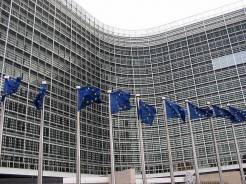By Charles Knox-Vydmanov
The European Commission released a new communication on social protection last week. This is the first time that the EU, the world’s biggest aid donor, has sought to explain how EU development cooperation can support the strengthening of social protection systems around the world. 
If all goes to plan, the communication will secure the approval of the European member states in the next meeting of the Foreign Affairs Council on 15 October, 2012. This will feed into future EU development policy and programmes on the ground. It will also mark further recognition within the international community of the importance of social protection for inclusive development.
The communication has been the result of consultation with over 250 stakeholders, including HelpAge and 17 Member states, and follows on from the development of the European Report on Development in 2010 that focused on social protection. HelpAge has been advocating for the development of the communication since 2006, in collaboration with other NGOs in Brussels. We are continuing to lobby to make sure the communication is approved in October.
Systems that address issues of poverty and inequality
Social protection has become a major development debate over the last decade, yet at times the outcome has been little more than small-scale programmes that only touch the surface of the widespread poverty and vulnerability in developing countries.
The communication, however, focuses on the bigger picture, emphasising the need to develop social protection systems that not only address extreme poverty, but issues of inequality, social cohesion and stability.
It also highlights the EU’s support for the concept of nationally-defined social protection floors. The concept of a social protection floor has been gaining significant international support in recent years. which compromises a set of social guarantees for everybody across the life course. In June, the International Labour Conference approved a recommendation on social protection floors that called for countries to move forward on their implementation.
This and the EU’s further endorsement signal positive recognition of social protection as a fundamental approach to fulfil the human right to social security.
Supporting income security in old age
Old age is rightly referenced throughout the communication as a key concern of effective social protection systems. The communication forms a strong foundation for the EU to support countries to address the currently low coverage of pension systems.
High levels of informality within the developing world combined with poverty across the life course means that few are able to take advantage contributory pension systems or to build up adequate savings for older age. Social pensions will be the most direct and effective response to this issue in the majority of developing countries.
 Support to efforts to extend social protection in old age would build on previous work of the EU. As an example, from 2008 to 2011 the EU supported HelpAge to implement a programme to support improvement of living conditions and access to legal benefits in Peru.
Support to efforts to extend social protection in old age would build on previous work of the EU. As an example, from 2008 to 2011 the EU supported HelpAge to implement a programme to support improvement of living conditions and access to legal benefits in Peru.
As part of this programme, HelpAge worked with partner organisations to strengthen the national association of older people (ANAMPER) and support advocacy and technical work around the introduction of a social pension.
This contributed to the decision of the Peruvian government to introduce a new social pension in late 2011, called the Pension 65 . As of July 2012, this social pension was already providing a benefit of around US$ 50 to 170,000 older people, approximately 10% of the population over 65.
The full text of the communication can be viewed on the European Commission website.
For more information on social pensions visit our Pension Watch website.
